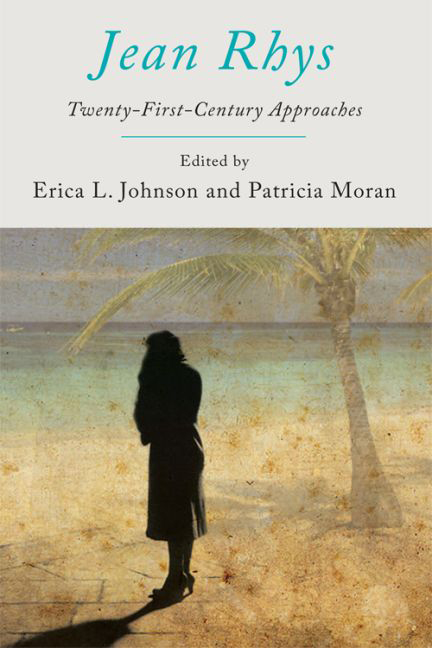Introduction: The Haunting of Jean Rhys
Published online by Cambridge University Press: 12 September 2017
Summary
In her unfinished autobiography, Jean Rhys (1890–1979) describes the birth of her writing career as a quasi-memorial for herself as a person: buying some black exercise books and the red, blue, green and yellow quill pens to ‘cheer up’ her table and banish its bareness, Rhys represents her writing out of her unhappy first love affair as a compulsive purgation of the experience, but one that left her bereft in the recognition that something in her had died. ‘I filled three exercise books and half another, then I wrote: “Oh God, I'm only twenty and I'll have to go on living and living and living.” I knew then that it was finished and that there was no more to say.’ From this genesis of art in inner death, Rhys went on to write five novels and numerous short stories that present a strikingly consistent world view and aesthetic, both of which hearken back to the affective stance she assumes in her earliest writing and then reiterates throughout her work up to and including her posthumously published autobiography. From her despairing diaries written at the age of twenty to her death nearly seventy years later, Rhys examined in meticulously polished prose a set of themes including the workings of the mind and emotion, gender and race relations, colonial history and, as we argue in this introduction, a certain spectrality of existence. Jean Rhys: Twenty- First-Century Approaches examines this cogency of style and world view from the major approaches that have defined Rhys criticism, and brings them together with emerging theoretical work to set the course for Rhys studies in the twenty-first century.
Much has been written about how Rhys's work defies periodisation and transcends categories, in the same way that her characters wander nomadically and live on the edges of what Sasha in Good Morning, Midnight thinks of as ‘you, who represent Society’. She is viewed as a modernist, postcolonial, Caribbean, British and Creole writer – yet to parse these identities is to fall short of the complexity of her work and the ways in which it troubles the very categories through which she is read. For example, the Caribbean where Rhys spent her youth, on the island of Dominica, bubbles up most prominently in her first manuscript and in her last novel alike;…
- Type
- Chapter
- Information
- Jean RhysTwenty-First-Century Approaches, pp. 1 - 18Publisher: Edinburgh University PressPrint publication year: 2015



